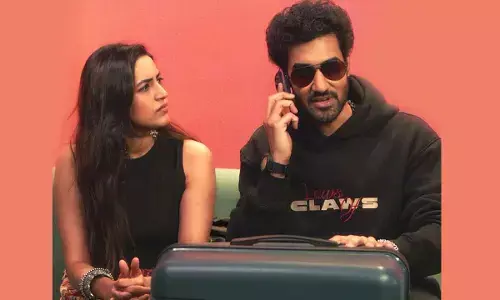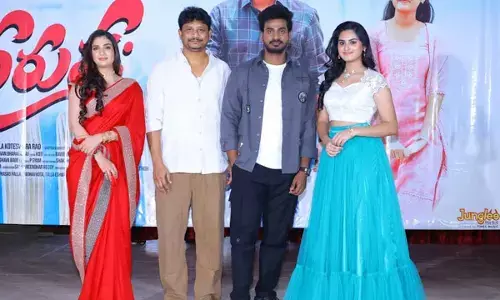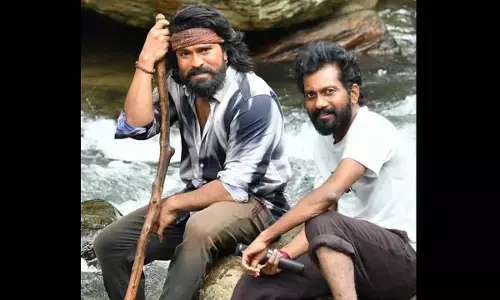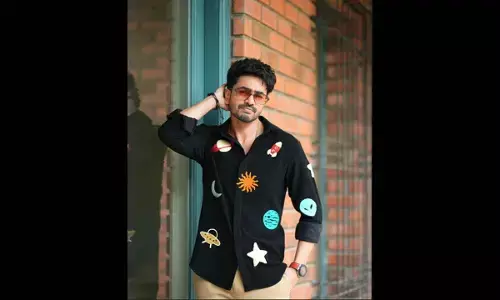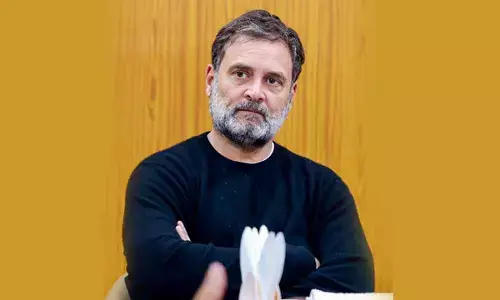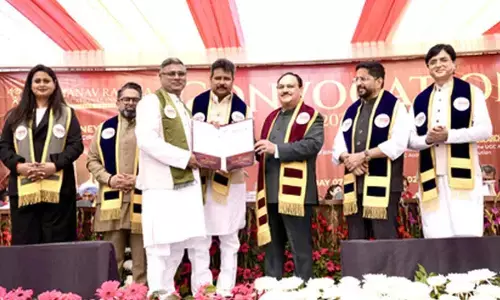Electoral process is a secular activity of State
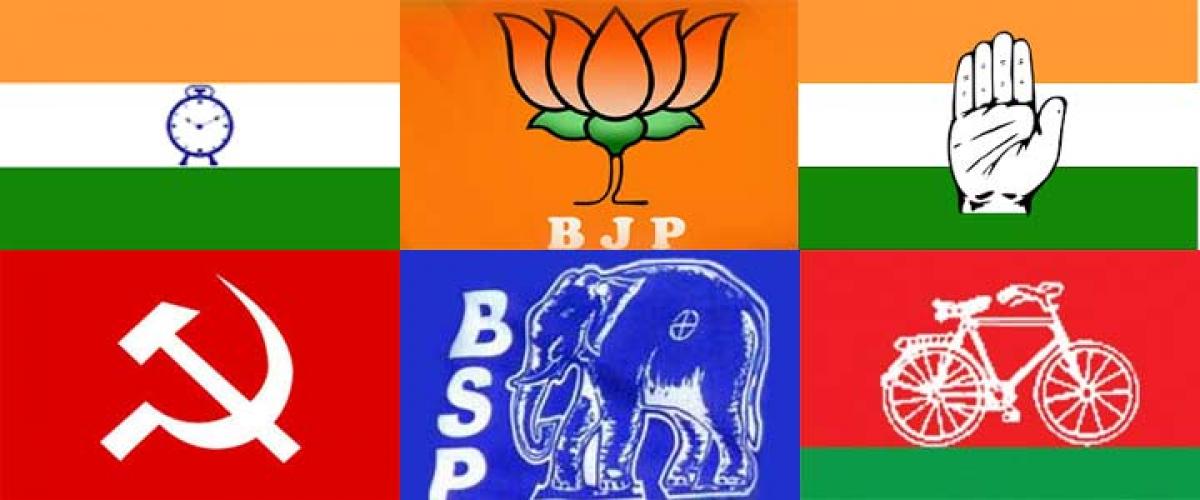
Last Monday the Apex Court ruled that “religion, race, caste, community or language would not be allowed to play any role in the electoral process” and that election of a candidate would be declared null and void if an appeal is made to seek votes on these considerations.
Last Monday the Apex Court ruled that “religion, race, caste, community or language would not be allowed to play any role in the electoral process” and that election of a candidate would be declared null and void if an appeal is made to seek votes on these considerations.
By a 4-3 majority ruling, a seven-judge Constitution Bench held that an election would be annulled not only if votes were sought in the name of the religion of the candidate but also when such an appeal hinged on religion of voters or candidate’s election agents or by anybody else with the consent of the candidate.
The third class will include religious and spiritual leaders, often engaged by candidates to mobilise their followers.
The majority view interpreted Section 123(3) of the Representation of the People Act to mean that this provision was laid down with an intent “to clearly proscribe appeals based on sectarian, linguistic or caste considerations; to infuse a modicum of oneness, transcending such barriers and to borrow Tagore’s phrase transcend the fragmented ‘narrow domestic walls’ and send out the message that regardless of these distinctions, voters were free to choose the candidate best suited to represent them.”
That should have really shocked our political leaders banking on all those that the SC ruled against. Whether the import of the judgment has really been understood by the people, particularly the voters of the world's most populous democracy, is not known.
Will the judgment be really adhered to? There is little to suggest the same. Who can separate caste from politics, say in UP and its social engineering methods of leaders?
This order of the SC was the need of the hour but whether this would really impact the politics of our country cannot be said now.
Yes, there would be petitions and petitions in the SC against the leaders now with proof of their using the barred practices and if the judgment is applied to those how many would remain in politics?
Section 123(3) of the Act defines appeals made by a candidate or his agents to vote or refrain from voting for any person on the ground of “his” religion, race, caste, community or language as a "corrupt practice".
The Constitution Bench was really concerned about the interpretation of the term "his" mentioned in the Act while dealing with the subject.
The Bench felt that it was important to define what this term means since it would define whose religion it has to be when an appeal is made.
In their majority view, Chief Justice of India T S Thakur, Justices Madan B Lokur, S A Bobde and L Nageswara Rao ruled in favour of a purposive interpretation, stating that “his” would mean religion of candidate, his agents, voters as well as any other person who, with the candidate’s consent, brings up religion in an appeal for the furtherance of the prospects of the election.
“An appeal in the name of religion, race, caste, community or language is impermissible under the Representation of the People Act, 1951 and would constitute a corrupt practice sufficient to annul the election in which such an appeal was made regardless whether the appeal was in the name of the candidate’s religion or the religion of the election agent or that of the opponent or that of the voter’s,” the majority judges ruled.
The bench, however, refrained from revisiting its 1995 judgment on whether the words “Hindutva” and “Hinduism” connote the “way of life” of the Indian people and not just Hindu religious practices.
According to this three-judge bench judgment of 1995, an appeal in the name of ‘Hindutva’ to seek votes was not a corrupt practice warranting disqualification of a candidate as it was ‘a way of life’ and not a religion. Since this judgment also formed the clutch of matters being examined by the seven judges, the issue regarding revisiting the meaning of “Hindutva” and “Hinduism” also came up but the Constitution Bench judgment of Monday remained silent on it.
Meanwhile, Justices Adarsh K Goel, Uday U Lalit and D Y Chandrachud dissented with the majority view, holding that the expression “his” is in reference to the candidate, in whose favour the appeal to cast a vote is made or that of a rival candidate when an appeal is made to refrain from voting for another.
“To hold that a person who seeks to contest an election is prohibited from speaking of the legitimate concerns of citizens that the injustices faced by them on the basis of traits having an origin in religion, race, caste, community or language would be remedied is to reduce democracy to an abstraction,” the minority judgment said.
“Electoral politics in a democratic polity is about mobilisation. Social mobilisation is an integral element of the search for authority and legitimacy...in the hurly burly of the great festival of democracy,” it said.
But the majority view overruled this, pointing out that electoral processes are secular activities of the State and that religion can have no place in it.
“The State being secular in character will not identify itself with any one of the religions or religious denominations.
This necessarily implies that religion will not play any role in the governance of the country which must at all times be secular in nature.
The elections to the State legislature or to Parliament or for that matter or any other body in the State is a secular exercise just as the functions of the elected representatives must be secular in both outlook and practice,” the CJI held.
Justice Bobde, said the provision intended to serve the broad purpose of checking appeals to religion, race, caste, community or language by any candidate.
Justice Thakur felt that the Constitutional ethos forbade mixing of religions or religious considerations with the secular functions of the State and that religion remained a matter personal to the individual with which neither the State nor any other individual has anything to do.
“An interpretation that will have the effect of removing the religion or religious considerations from the secular character of the State or state activity ought to be preferred over an interpretation which may allow such considerations to enter, effect or influence such activities,” Justice Thakur said.
Justices Lokur and Rao underlined that concerns under Section 123(3) of the Act increased with the tremendous reach already available to a candidate through the print and electronic media, and now with access to millions through the Internet and social media as well as mobile phone technology, none of which were seriously contemplated till about fifteen years ago.
“Therefore now, more than ever, it is necessary to ensure that the provisions of sub-section (3) of Section 123 of the Act are not exploited by a candidate or anyone on his or her behalf" they maintained.
Unmindful of the same Mayawati appealed to the Muslims not to waste their vote on a divided SP but prefer her party as she had already included 97 Muslims in her list.
Others are bound to follow suit. It would be interesting to watch whether our politicians would talk of development alone, hence forth.
Time to sit back and watch the delightful democratic processes unfold and the law catch up with the culprits.



